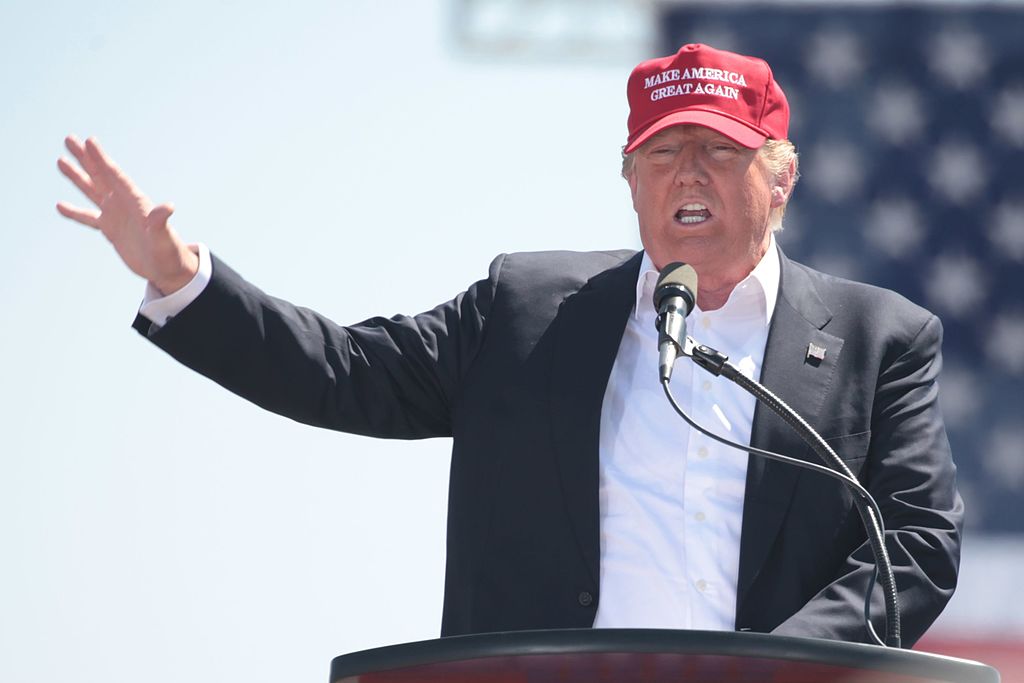
- Details
- By Native News Online Staff
A former Justice Department official told the House committee investigating the attack on the U.S. Capitol that Donald Trump complained Native Americans were paid to vote against him in the 2020 election.
Richard Donoghue, who served as Trump’s acting deputy attorney general in December 2020 and January 2021, testified on Monday that the former president pressured Justice officials to investigate alleged irregularities in Native American voting. Trump accused Native Americans of voter fraud, claiming they cost him the election.
"Dead people are voting, Indian people are getting paid to vote,” Trump said, according to Donoghue. “There’s lots of fraud going on here.”
Donoghue refuted Trump’s baseless claim, telling the Committee, “We told him flat out that much of the information he’s getting is false and/or just not supported by the evidence.”
Undaunted, Trump repeated the lie about Native Americans in interviews and post-election rallies, including a June 5 speech for North Carolina Republicans, where he talked about alleged widespread voter fraud and claimed: "Indians getting paid to vote in certain states, including Arizona and Nevada, getting paid to vote. You’re not allowed to get paid to vote."
Trump’s false claims may have stemmed, in part, from his disappointment that Native American voters played a key role in several swing states won by Biden — including Wisconsin and Arizona — during the 2020 election.
The results of the election were in line with a national poll of Native American voters prior to the November contest. A national survey by Native News Online released prior to the election found that its Native American readers and Indian Country leaders overwhelmingly supported Democratic nominee Joseph R. Biden for president. The survey of 519 American Indians and Alaska Natives from more than 200 tribes found that 68 percent planned to support Mr. Biden for president, with just 15 percent planning to support then President Donald J. Trump.
Native American voting rights advocate Tom Rodgers (Blackfeet Nation), issued a statement after Donoghue's testimony about Trump's "false and damaging claims" that Native Americans were paid to vote in 2020.
"The Big Lie just got bigger," Rodgers said in a statement published on Twitter. "For nearly a century, every effort has been made to keep Native Americans from casting a ballot, the core rite of democracy. Many people have worked hard to break these dark barriers, so that any Indigenous adult who wants to vote can vote.
"Trump's unfounded accusation that Native Americans were paid to vote in 2020 is in line witha lifetime of his ignorant hate-filled remarks aimed at Native Americans. Trump's words are why Native Americans will continue to vote in record numbers. This path gives us our voice."
More Stories Like This
Native News Weekly (August 25, 2024): D.C. BriefsUS Presidents in Their Own Words Concerning American Indians
Monday Morning (November 24, 2025): Articles You May Have Missed This Past Weekend
Navajo Nation President Nygren Defends Record, Says Speaker’s Actions ‘Disgraceful’ and Politically Driven
Native News Weekly (November 23, 2025): D.C. Briefs
Help us tell the stories that could save Native languages and food traditions
At a critical moment for Indian Country, Native News Online is embarking on our most ambitious reporting project yet: "Cultivating Culture," a three-year investigation into two forces shaping Native community survival—food sovereignty and language revitalization.
The devastating impact of COVID-19 accelerated the loss of Native elders and with them, irreplaceable cultural knowledge. Yet across tribal communities, innovative leaders are fighting back, reclaiming traditional food systems and breathing new life into Native languages. These aren't just cultural preservation efforts—they're powerful pathways to community health, healing, and resilience.
Our dedicated reporting team will spend three years documenting these stories through on-the-ground reporting in 18 tribal communities, producing over 200 in-depth stories, 18 podcast episodes, and multimedia content that amplifies Indigenous voices. We'll show policymakers, funders, and allies how cultural restoration directly impacts physical and mental wellness while celebrating successful models of sovereignty and self-determination.
This isn't corporate media parachuting into Indian Country for a quick story. This is sustained, relationship-based journalism by Native reporters who understand these communities. It's "Warrior Journalism"—fearless reporting that serves the 5.5 million readers who depend on us for news that mainstream media often ignores.
We need your help right now. While we've secured partial funding, we're still $450,000 short of our three-year budget. Our immediate goal is $25,000 this month to keep this critical work moving forward—funding reporter salaries, travel to remote communities, photography, and the deep reporting these stories deserve.
Every dollar directly supports Indigenous journalists telling Indigenous stories. Whether it's $5 or $50, your contribution ensures these vital narratives of resilience, innovation, and hope don't disappear into silence.
 The stakes couldn't be higher. Native languages are being lost at an alarming rate. Food insecurity plagues many tribal communities. But solutions are emerging, and these stories need to be told.
The stakes couldn't be higher. Native languages are being lost at an alarming rate. Food insecurity plagues many tribal communities. But solutions are emerging, and these stories need to be told.
Support independent Native journalism. Fund the stories that matter.
Levi Rickert (Potawatomi), Editor & Publisher

